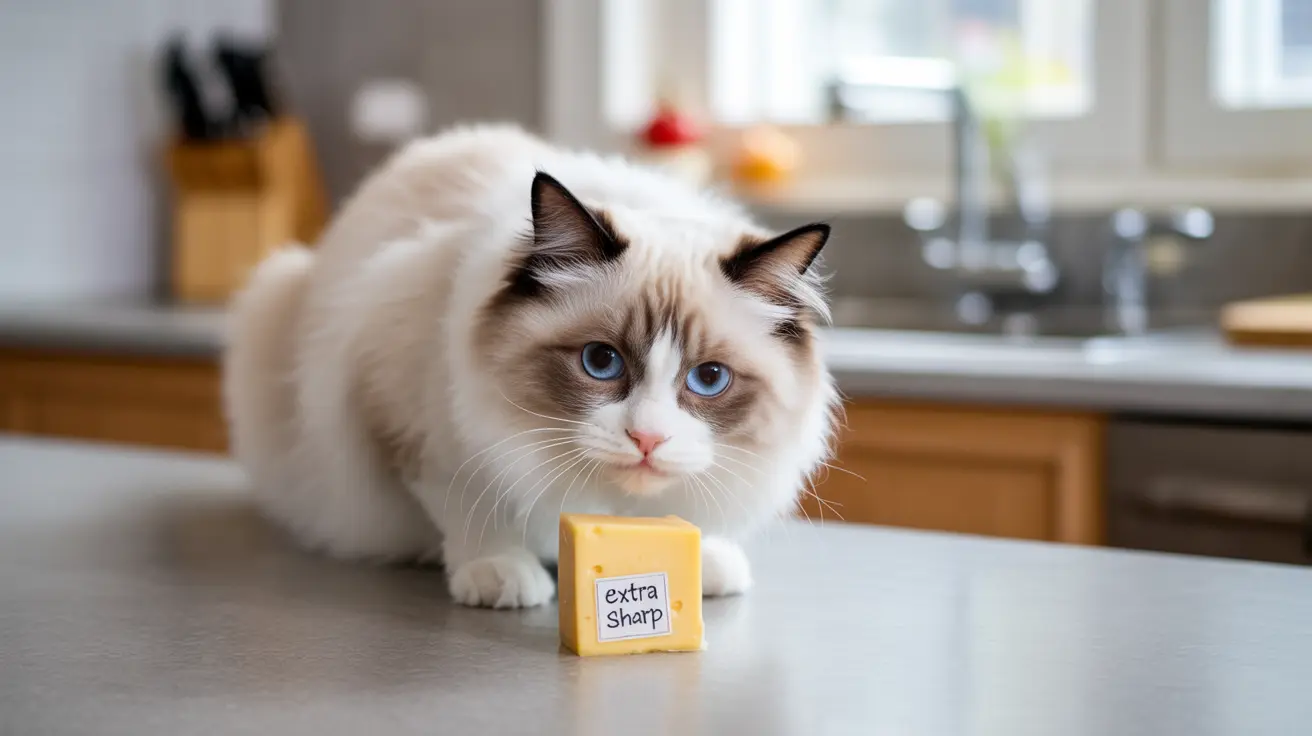Many cat owners have wondered about sharing their favorite dairy snacks with their feline friends. While cats might show interest in cheese, understanding whether it's safe and appropriate for them requires careful consideration of their unique dietary needs and digestive capabilities.
In this comprehensive guide, we'll explore the relationship between cats and cheese, examining both the potential benefits and risks to help you make informed decisions about including dairy in your pet's diet.
Understanding Cats' Relationship with Dairy
Despite popular culture depicting cats happily lapping up milk and cream, most adult cats are actually lactose intolerant. This biological reality stems from their evolution as obligate carnivores, meaning their digestive systems are specifically designed to process meat-based proteins rather than dairy products.
As kittens grow into adults, they naturally produce less lactase, the enzyme necessary for breaking down lactose in dairy products. This reduction makes cheese and other dairy products potentially problematic for most mature cats.
The Truth About Cheese and Cat Digestion
While cheese isn't toxic to cats, it's far from an ideal treat. Most cats lack the necessary enzymes to properly digest dairy products, which can lead to various digestive issues. Even small amounts of cheese can cause discomfort in lactose-intolerant cats.
Some cats may tolerate certain types of cheese better than others, particularly hard cheeses that contain less lactose. However, this doesn't mean cheese should become a regular part of their diet.
Potential Risks of Feeding Cheese to Cats
Digestive Issues
The most immediate concern when feeding cheese to cats is the potential for gastrointestinal upset, which can manifest as:
- Vomiting
- Diarrhea
- Stomach pain
- Bloating
- Gas
Long-term Health Concerns
Regular cheese consumption can lead to several health issues:
- Weight gain due to high fat content
- Dental problems
- Kidney stress from excess salt
- Nutrient imbalances
When (and How) to Offer Cheese Safely
If you decide to give your cat cheese, follow these guidelines:
- Choose low-lactose options like cheddar or Swiss
- Offer tiny amounts (no larger than a pea)
- Monitor for adverse reactions
- Limit treats to no more than 10% of daily caloric intake
Better Alternatives to Cheese
Instead of cheese, consider these cat-friendly alternatives:
- Commercial cat treats formulated for feline nutrition
- Small pieces of cooked lean meat
- Freeze-dried meat treats
- Commercial pill pockets for medication
Frequently Asked Questions
Can cats eat cheese safely, and what types of cheese are best for them?
While cats can technically eat cheese, it's not recommended as a regular treat. If you must offer cheese, stick to small amounts of hard, low-lactose varieties like cheddar or Swiss, and monitor your cat for any adverse reactions.
Why are many cats lactose intolerant, and how does cheese affect their digestion?
Adult cats produce very little lactase enzyme, making them lactose intolerant. When they consume cheese, their bodies struggle to break down the lactose, leading to digestive upset and discomfort.
What are the symptoms of lactose intolerance or dairy allergies in cats after eating cheese?
Common symptoms include vomiting, diarrhea, gas, bloating, abdominal pain, and increased thirst. Some cats may also experience skin irritation or allergic reactions.
How much cheese can I give my cat without causing health issues?
If offering cheese, limit it to a piece no larger than a pea, and do so only occasionally. However, it's best to avoid cheese altogether and opt for cat-specific treats instead.
Are there safer alternatives to cheese for rewarding or medicating my cat?
Yes, commercial cat treats, small pieces of cooked lean meat, or specially designed pill pockets are safer alternatives for treating or medicating your cat.
Conclusion
While cheese isn't toxic to cats, it's best to avoid it as a regular treat due to the high prevalence of lactose intolerance and potential health risks. Instead, focus on providing your cat with species-appropriate treats and a balanced, meat-based diet that better suits their nutritional needs.






